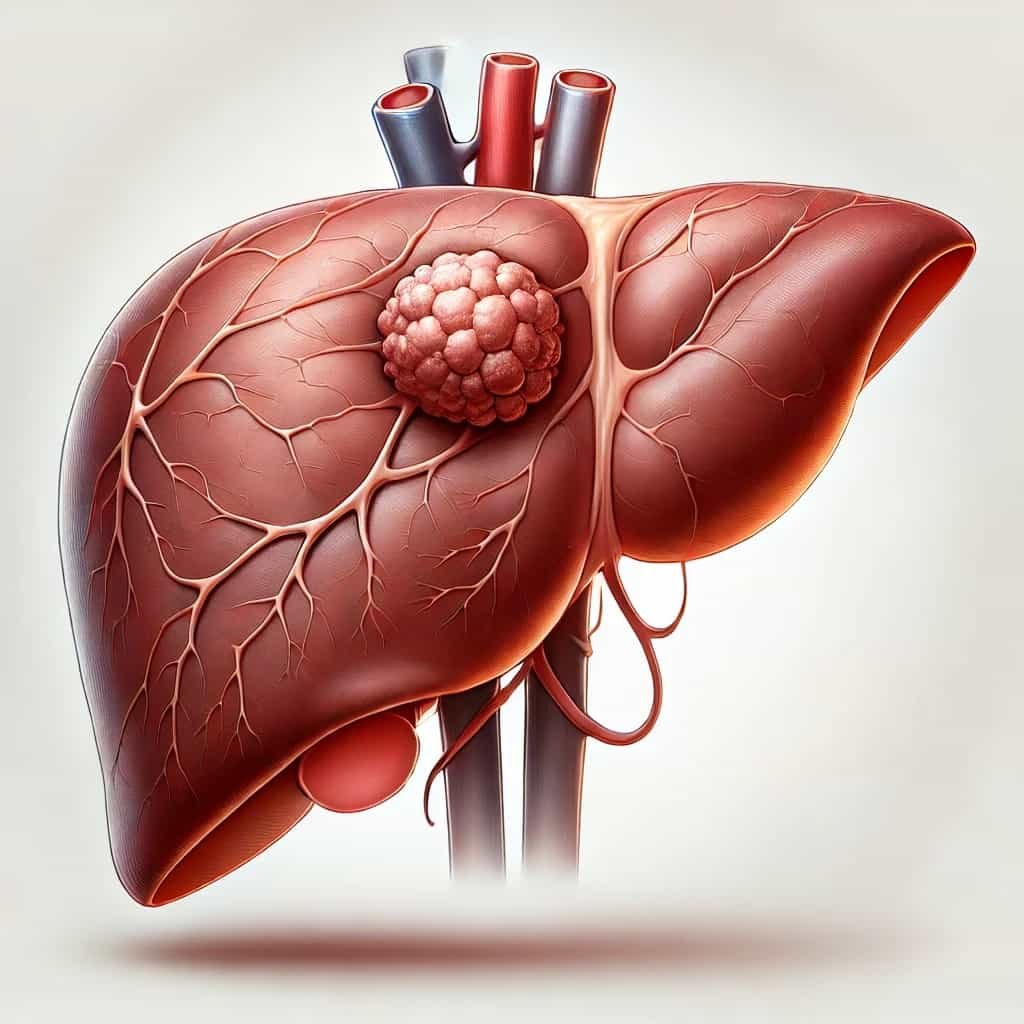
Home > Blogs > Liver Cancer > Overview > Liver Cancer
Liver Cancer: Can It Be Treated Early?

What is Liver Cancer?
Understanding Early Detection of Liver Cancer
- Crucial for Treatment Outcomes
Early detection of liver cancer is crucial for improving treatment outcomes. Identifying the disease at an initial stage can significantly increase survival rates. Unfortunately, symptoms often do not appear until the cancer has progressed.
- Routine Screenings
Routine screenings are vital for high-risk individuals. Hepatitis B and C patients should be especially vigilant, as they have a higher likelihood of developing liver cancer. Regular check-ups can help catch abnormalities early.
Blood tests measuring alpha-fetoprotein (AFP) levels serve as one valuable tool in monitoring liver health. Elevated AFP may signal potential issues that warrant further investigation. Imaging techniques like ultrasound or CT scans can also aid in spotting tumors before symptoms arise. These methods provide detailed views of the liver, helping doctors make informed decisions about next steps.
Awareness and proactive management are essential elements in combatting this serious illness effectively.
Risk Factors for Developing Liver Cancer
Liver cancer can develop due to various risk factors, many of which are linked to underlying liver conditions. Chronic hepatitis B and C infections rank high on the list. These viruses can cause inflammation and damage over time.
Cirrhosis, often resulting from alcohol abuse or fatty liver disease, is another significant contributor. When the liver becomes scarred, its ability to function diminishes, increasing cancer risk.
Certain lifestyle choices also play a role. Obesity and diabetes have been associated with higher chances of developing liver cancer. The metabolic changes in these conditions may create an environment that fosters tumor growth.
Moreover, exposure to aflatoxins—toxins produced by mold found in some crops—can elevate risks too. It’s crucial for individuals at greater risk to engage in regular health check-ups for early detection and management strategies.

Diagnostic Tests for Detecting Liver Cancer
👉 Imaging Techniques:
Detecting liver cancer early is crucial for effective treatment. Various diagnostic tests help identify the presence of tumors in the liver. One common method is imaging scans. Ultrasounds, CT scans, and MRIs can provide detailed images of the liver. These tools allow doctors to spot abnormalities that may indicate cancer.

👉 Blood tests:
Blood tests also play a significant role. They can measure levels of certain substances, like alpha-fetoprotein (AFP), which may be elevated in individuals with liver cancer.
Treatment Options for Early Stage Liver Cancer
- Surgery:
For early-stage liver cancer, several treatment options can significantly improve outcomes. Surgery is often the first choice. Surgeons may remove the tumor or even part of the liver if it’s localized.
- Liver Transplantation:
Liver Transplantation: Transplantation is another viable option for eligible patients. This involves replacing the diseased liver with a healthy one from a donor, providing a fresh start for those affected.

- Radiation Therapy:
Radiation therapy targets cancer cells while minimizing damage to surrounding tissue. It can be effective in shrinking tumors before surgery or as a standalone treatment when other methods aren’t suitable.
- Targeted Therapy and Immunotherapy:
Targeted therapy uses drugs designed to attack specific characteristics of cancer cells. This approach aims to hinder their growth and spread without affecting normal cells as much. Immunotherapy harnesses the body’s immune system to fight cancer more effectively. It offers hope through innovative treatments that can enhance natural defenses against tumor development in early stages.
| Treatment Option | Description | When Used | Key Benefits | Potential Risks |
|---|---|---|---|---|
| Surgery (Liver Resection) | Removal of the liver part containing the tumor. | Early-stage cancer with good liver function, no cirrhosis. | Potential cure, complete tumor removal. | Bleeding, infection, liver failure. |
| Liver Transplantation | Replacement of diseased liver with a healthy donor liver. | Localized cancer with liver cirrhosis, within transplant criteria. | Cure for cancer and underlying liver disease. | Organ rejection, long wait time, surgery risks. |
| Ablative Therapies | Tumor destruction using heat (Radiofrequency Ablation – RFA) or cold (Cryoablation). | Small, inoperable tumors, or patients unfit for surgery. | Minimally invasive, preserves liver tissue. | Bleeding, liver damage, incomplete tumor destruction. |
| Transarterial Therapies | Blocking tumor blood supply with chemotherapy or radioactive beads (TACE, TARE). | Intermediate-stage liver cancer, non-surgical cases. | Targets tumor directly, spares healthy tissue. | Liver inflammation, pain, nausea, infection. |
| Systemic Therapy | Oral or IV drugs targeting cancer cells (e.g., Sorafenib, Lenvatinib). | Advanced-stage liver cancer, or spread to other organs. | Slows cancer growth, extends survival. | Diarrhea, fatigue, high blood pressure, hand-foot syndrome. |
| Immunotherapy | Boosts immune response to target cancer cells (e.g., Atezolizumab + Bevacizumab). | Advanced or metastatic liver cancer, especially with poor response to other treatments. | Prolongs survival, better tolerated than chemotherapy. | Immune-related side effects, bleeding risk. |
| Palliative Care | Symptom relief to improve quality of life. | Advanced cases, when curative treatment is not possible. | Pain relief, improved nutrition and comfort. | No effect on cancer progression. |
Lifestyle Changes to Reduce the Risk of Liver Cancer
- Healthy Diet:
Making mindful lifestyle changes can significantly lower the risk of liver cancer. A balanced diet rich in fruits, vegetables, and whole grains provides essential nutrients that support liver health. Reducing red meat and processed foods is also beneficial.
- Physical Activity:
Regular physical activity plays a crucial role as well. Aim for at least 150 minutes of moderate exercise each week to maintain a healthy weight and improve overall wellness.
- Limiting Alcohol Consumption:
Limiting alcohol consumption is vital too. Excessive drinking can lead to liver damage over time, increasing cancer risk.
- Protecting Against Hepatitis:
Additionally, protecting yourself from hepatitis infections through safe practices like vaccination and proper hygiene can make a difference.
- Routine Check-Ups:
Lastly, routine medical check-ups help identify any early warning signs or potential issues related to liver health. Taking proactive steps ensures better outcomes for your body’s most important organ.

Support and Resources for Patients with Liver Cancer
- Emotional and Practical Support:
Facing a liver cancer diagnosis can be overwhelming. Patients often need more than just medical treatment; emotional and practical support is crucial.
- Available Resources:
Numerous organizations provide valuable resources. The American Cancer Society offers education, counseling services, and support groups where individuals can share experiences. Connecting with others who are on similar journeys can make a significant difference.
- Family Support:
- Local Support Services:
Local hospitals may also have dedicated teams to assist patients through their treatment process. Accessing nutritionists or social workers can help address specific concerns related to diet and mental health.
- Online Platforms:
Online platforms have emerged as vital tools too. Websites like CancerCare offer free professional support over the phone or via chat, allowing patients to seek guidance from the comfort of home.
Frequently asked questions
Frequently asked questions
What is liver cancer?
Liver cancer is a disease where abnormal cells grow in the liver, forming a lump or tumor. It can affect the liver’s function and spread to other parts if not treated early.
What are the early symptoms of liver cancer?
Early symptoms can be mild, like stomach pain, tiredness, weight loss, or loss of appetite. Some people may notice swelling in the belly or yellow skin (jaundice).
Can fatty liver lead to liver cancer?
Yes, fatty liver, especially in people with diabetes or obesity, can increase the risk of liver cancer over time. If fatty liver turns into cirrhosis (liver damage), the risk becomes higher.
Is liver cancer common in India?
Liver cancer is not as common as other cancers but is increasing in India due to rising cases of fatty liver, hepatitis B, hepatitis C, and alcohol-related liver damage.
How is liver cancer diagnosed?
Doctors use ultrasound, CT scan, MRI, and blood tests like AFP (Alpha-fetoprotein) to detect liver cancer. Sometimes, a biopsy (taking a small piece of liver) is needed for confirmation.
Can liver cancer be cured?
Liver cancer can be cured if detected early, and surgery or liver transplant is possible. In advanced stages, treatments like chemotherapy or targeted medicines can help control it.
Does liver cancer spread fast?
Liver cancer can grow quickly if it is aggressive and not treated on time. It can spread to nearby organs or other parts like the lungs.
What foods should liver cancer patients avoid?
Patients should avoid oily, fried, and processed foods. It is better to eat light, home-cooked meals, fruits, vegetables, and drink plenty of water.
Can hepatitis B or C cause liver cancer?
Yes, long-term infection with hepatitis B or C can damage the liver and lead to cirrhosis, which raises the risk of liver cancer.
What is the survival rate of liver cancer?
Survival depends on the stage at diagnosis. Early-stage patients with surgery or transplant can live longer, but late-stage cancer is harder to treat.

Meet
Dr. Harsh Shah
MS, MCh, DrNB
GI & HPB Oncosurgeon
Dr Harsh Shah is a well known GI & HPB Robotic Cancer Surgeon in Ahmedabad. He treats cancers of Esophagus, stomach, liver, pancreas, colon, rectum & small intestines. He is available at Apollo Hospital.


